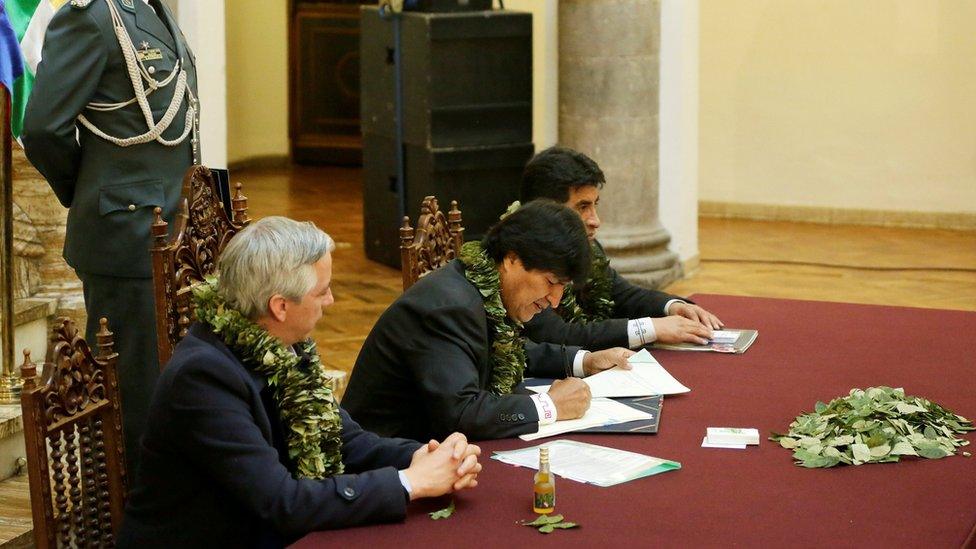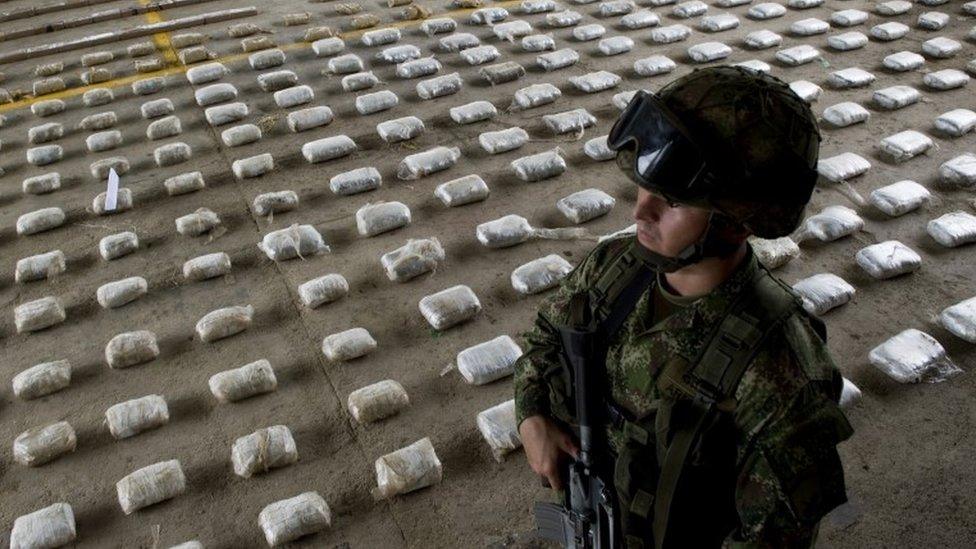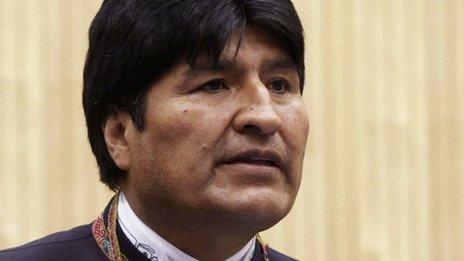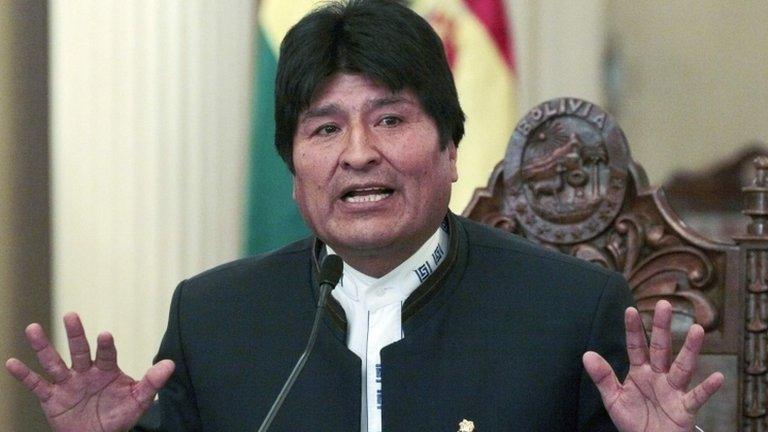Bolivia's Morales boosts legal coca production
- Published

Mr Morales has long supported the global legalisation of coca leaf chewing
Bolivian President Evo Morales has signed into law a controversial bill that nearly doubles the area that can be legally planted with coca crops.
A total of 22,000 hectares (55,000 acres) can be planted with coca nationwide, compared with 12,000 hectares under previous legislation.
Mr Morales is himself a former coca farmer and dismissed warnings that the move would fuel the illegal drug trade.
The coca plant, used to make cocaine, also has traditional uses in the Andes.
Its leaves are used to make tea to fight altitude sickness. When chewed they provide mild stimulation and suppress hunger, thirst and pain.
Mr Morales, Bolivia's first indigenous president, has long supported the legalisation of coca leaf chewing globally, urging the UN to declare it legal. He still heads a federations of coca farmers' unions in the Chapare region.
"We want to guarantee coca supplies for life" for people who use the leaves legally, the leftist leader said in a speech.
Opposition lawmakers said the law was unconstitutional as it violated international treaties. They argued it would be a boon to drug traffickers.
The government hopes to boost the export of coca leaf products, according to the La Razon newspaper. Such products are already legally exported to Ecuador, it said.
Despite the previous restrictions, in 2014, 20,400 hectares of land in Bolivia was "under coca bush cultivation", according to UN figures, representing 15% of the world total.
The country is the world's third-biggest producer of cocaine, after Colombia and Peru.
In 2013 the European Union estimated that demand for legal coca in Bolivia was 14,700 hectares.
- Published2 July 2015

- Published12 March 2012

- Published9 July 2012
